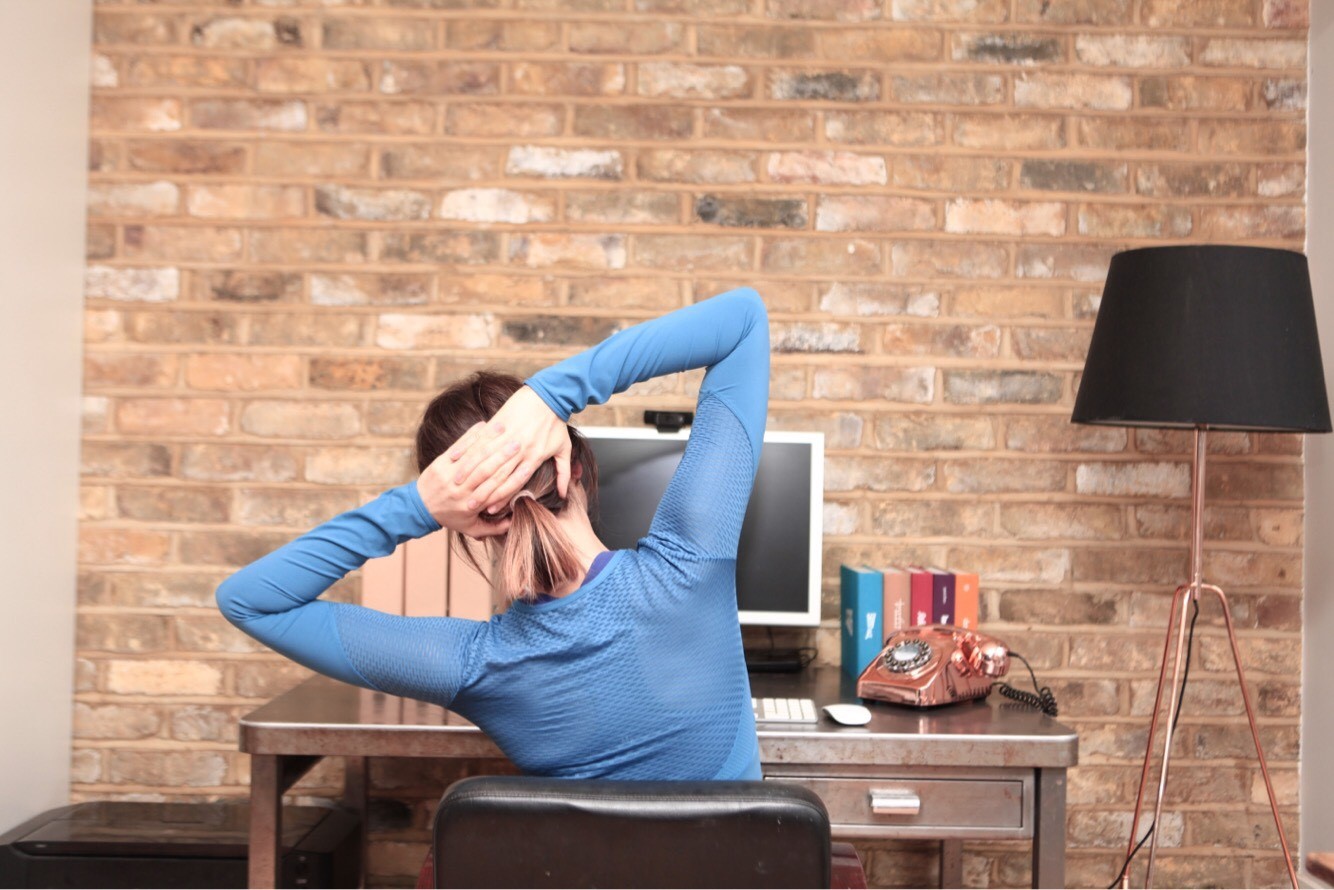Study: How healthy are freelancers and entrepreneurs who work from home?
Before going freelance or launching a business, many people might think it’s all long, leisurely lunches and spontaneous trips to the beach when the sun comes out. But new research from PR Unlocked shows how working from home can impact the health and wellbeing of self-employed workers, highlighting the importance of community, work-spaces and routines.
Two-fifths of the freelancers and small business owners work from home five days a week and a fifth said it varies week-to-week. A minority work six or seven days a week (4% and 1% respectively), 16% work three days and 15% work four days.
Two-thirds (66%) have a dedicated workspace in their home, but just over a third (34%) don’t. For freelancers and entrepreneurs who don’t have a home office, they work from their dining room or kitchen table, on the sofa, in bed or from a garden office.
Prolonged sitting or not having a proper desk can have a negative impact on our bodies. Pilates teacher Kerrie-Anne Bradley and Founder of Pilates at Your Desk said: “Sitting incorrectly puts undue pressure onto our hips and lower back. It creates imbalances throughout the body. Those of us sit like a cashew, for example, where the bottom is tucked under and the upper back and shoulders are rounded forward are at more risk of facing issues like back and neck problems, and tight hip flexors. Sitting like a cashew tends to happen when we work on a bed and sofa. Basically, where the laptop isn’t at eye-height and you are less able to sit up on your sit bones; the boney bits under your bottom.”
But a lot of self-employed people don’t just work from home all day, every day. A quarter (25%) said they sometimes work from co-working spaces, and over half (55%) work from coffee shops, libraries or other public spaces. Over a third (34%) sometimes work from clients’ offices and 13% work from other freelancers’ or business owners’ homes.
When it comes to taking long, leisurely lunches – it turns out a lot of freelancers and small businesses didn’t get the memo. Over a third (35%) eat lunch at their desk and 3% don’t take a lunch break at all. Just over two-fifths (41%) take at least a 30-minute break away from their place of work, and 21% take at least an hour lunch break.
And in terms of being active, a quarter (25%) said they make time to exercise every day or most days when they’re working from home, 37% get active some days and 16% at least once a week. However, 22% of self-employed people working from home never find the time to exercise.
Kerrie-Anne added: “We should also try to move every 30 minutes. This doesn’t have to be leg-over-head stuff, it can be a walk to kitchen, squats while you wait for your coffee, or lunges while you’re waiting for lunch to cook.”
Over a third (38%) of freelancers and entrepreneurs regularly have days when they don’t speak to or meet other people during working hours, and 40% sometimes have days where they don’t see or speak to anyone else. Only 22% of the freelancers and business owners PR Unlocked spoke to said they try to meet or speak to other people most days.
As a result of working from home, 53% said they had felt unproductive, 49% isolated, 47% lonely and 36% stressed. Only 15% of the freelancers and business owners hadn’t experienced any negative feelings.
Some respondents specifically said they felt out of the loop with what’s going on in their industry, missed having colleagues to bounce ideas off, and wanted people to share problems with. And the majority (80%) of freelancers and small business owners find it difficult to switch off from work.
David Price, CEO of Health Assured, said: “When you run a small business from your bedroom or spend your days freelancing in your kitchen, you run the risk of turning your home into a place associated with work. It’s hard to relax and unwind at the end of a workday when you’re sitting within the same four walls that you’ve spent eight hours working hard in so try to create a specific space for working in. Working remotely or by yourself takes you away from the support systems that employed, on-site staff enjoy. If you have a problem, you won’t have anyone to turn to. Trying to make the effort to see someone every day can help with isolation. Go outside, get some coffee and chat with a friend.”
Although self-employed workers should make the effort to look after their health and wellbeing, it’s important to remember the advantages of this way of working.
The majority (83%) of freelancers and small business owners said one of the best things about working from home was no commute. Over half (54%) said getting to fit in household chores to their day, and a further 54% said they appreciate getting to take breaks when they want.
Nearly half (48%) said they’re more productive, a third (32%) said they get to fit exercise into their day and a quarter (26%) said they eat healthier. Some freelancers and business owners added the flexibility to work around children, look after their dogs and other pets, avoiding office politics and working around their health.
Read the full breakdown of the research, along with advice and case studies on the PR Unlocked website. https://prunlocked.com/working-from-home-routines-health-wellbeing-freelancers-businesses/
Notes to editor
PR Unlocked surveyed 406 freelancers and business owners who work from home regularly.
PR Unlocked is an online training and coaching platform to help startups and small businesses promote and market their business. It was created by Claire Gamble, MD of Unhooked Communications.
As well as a full course, PR Unlocked includes free resources, guides, articles and podcasts.
ORIGINAL PRESS SOURCE PRFire.com

